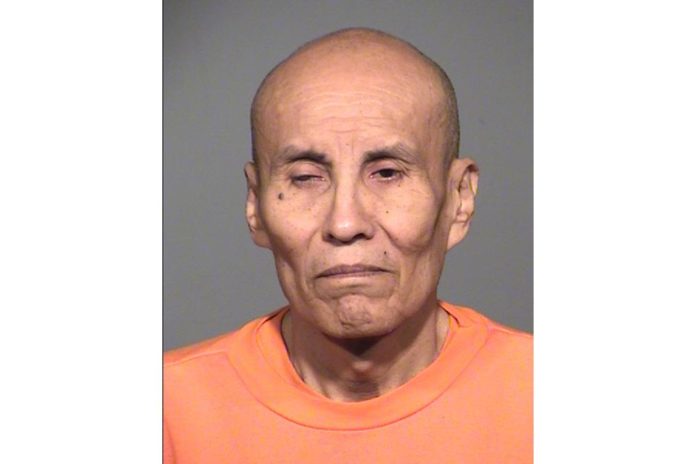
The Arizona Supreme Court on Monday declined to overturn a lower court ruling that found a man set to be executed this week is competent to be put to death.
The high court, without comment, declined to review last week’s decision from a judge in Pinal County that rejected arguments that mental illness made Clarence Dixon unable to understand why he was being put to death.
While the judge found Dixon does suffer from schizophrenia, he said Dixon is rational and understands the proceedings in his case well enough to show he is competent.
Dixon’s lawyers are now expected to ask a federal judge in Phoenix to consider his competency as part of a flurry of last-minute court action they hope will prevent Wednesday’s scheduled execution.
Meanwhile, the state is offering to mix a new batch of the sedative sodium pentobarbital that it intends to use in the injection. That would get around arguments from Dixon’s lawyers that state testing showed the drug expired in April and is not good until late August, as the state contends.
U.S. District Court Judge Diane Humetewa held a hearing Monday morning to consider Dixon’s expired drug claim. But she said she “struggled” to see how the argument raised a valid constitutional issue in light of U.S. Supreme Court rulings that said courts should not meddle in the details of state lethal injection decisions.
“The question that I struggle with is, does that rise to a constitutional right?” she asked Dixon attorney Jennifer Moreno.
Morenor told the judge that a 2017 settlement agreement required Arizona to use non-expired drugs, and that helped build their claim that using expired pentobarbital would equate to cruel and unusual punishment.
“Without a proper test, those drugs should have been disposed of, and we shouldn’t even be talking about this,” Moreno said.
But she acknowledged that if the state is able to mix the new batch and get it tested before the scheduled 10 a.m. Wednesday execution “that resolves the outstanding issues in this case.”
Humetewa plans to continue the hearing Monday afternoon, allowing the state time to confirm if the new drug batch can be mixed and testing done in time.
On Saturday, Humetewa declined to halt the execution after the Arizona attorney general’s office provided documents showing test results that determined the drug would not expire until August, based on its February mix date.
Arizona and many other states have struggled to get execution drugs in recent years after drug-makers refused to sell their products for that use. Arizona obtained the pentobarbital it plans to use from an unidentified compounding pharmacy.
Dixon, now 66 and blind, is set to be the first person put to death in Arizona in nearly eight years, mainly because of problems with the previous execution. The state had to give Joseph Wood 15 doses of a two-drug combination over two hours before he died in July 2014 in an execution that his lawyers said was botched. The state is now using just one drug.
Dixon was convicted of murder in the killing of 21-year-old Arizona State University student Deana Bowdoin. He was serving life sentences for a 1985 attack on a 21-year-old Northern Arizona University student when DNA testing linked him to Bowdoin’s unsolved rape and murder.
Dixon was found “not guilty by reason of insanity” in a 1977 assault case in which the verdict was delivered by then-Maricopa County Superior Court Judge Sandra Day O’Connor, nearly four years before her appointment to the U.S. Supreme Court. Bowdoin was killed on Jan. 7, 1978, two days after that verdict, according to court records.
Bowdoin was found dead in her apartment and had been raped, stabbed, and strangled. Dixon had been charged with raping Bowdoin, but the charge was later dropped on statute-of-limitation grounds. He was convicted, though, in her death.
Defense lawyers said Dixon has been diagnosed with paranoid schizophrenia on multiple occasions, has regularly experienced hallucinations over the past 30 years, and should not be executed.
On Tuesday, the Arizona Supreme Court issued a warrant for a second execution. Frank Atwood is set to die on June 8 for killing an 8-year-old girl in 1984. Authorities say Atwood kidnapped the girl, whose body was found in the desert northwest of Tucson.
Republished with the permission of the Associated Press.













